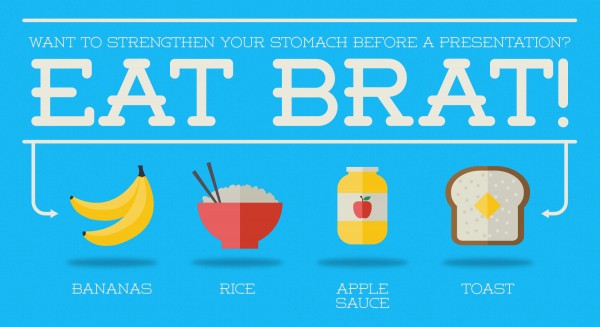There’s a great video on the tech blog Gizmodo on the science behind that sweaty-palm, teeth-chattering response many of us can’t help but have when it comes to public speaking. As it turns out, if you feel nervous when standing in front of a crowd or even while preparing for a presentation, not only are you in good company, but in all likelihood, that discomfort is actually a sign that your body is working properly. As Gizmodo explains,
“When our ancestors on the African savannah confronted a dangerous predator, they needed to be able to charge up and flee as quickly as possible. That’s why our brains developed a way of kickstarting our adrenal glands, upping our heart rate, and allowing us to expend a burst of energy really, really fast.”
Check out the full video below:
Nice!
So, the fight or flight response is kicked off with help from your adrenal glands (as in adrenaline…sound familiar yet?). Those glands, God love ‘em, are a part of your sympathetic nervous system which itself is under the umbrella of the autonomic nervous system. That may sound like a lot of scientific gobbledygook, but the point is: for the most part, you don’t have a ton of control over feeling antsy before a big presentation. You’re quite literally wired to work this way, and there’s a good reason behind it.
If breathing exercises or huge doses of preparation and perspective don’t seem to be the cure, then you’re probably stuck treating the symptoms instead of the root cause. Being nervous is like having a viral infection — there are some things you can try to feel more comfortable, but ultimately you may just have to let it run its course. However, just like viral infections, an ounce of prevention for performance anxiety issues is worth a pound of cure. And some people are more susceptible to “catching them” than others. If you’re one of those people with whatever the equivalent of a weak immune system is for nervousness, and you can’t take the obvious measure of keeping yourself out of situations that have potential for causing problems, then try to boost your resistance a little bit. One of our favorite tips to improve your performative fortitude is to change your eating habits in the long-term. When it comes down to it, most of these should be pretty painless compared to the on-stage jitters:
– Cutting out high-fat, fried, processed, overly salty, and bad-for-you foods
– Eating high-fiber foods such as vegetables and whole grains
– Eating lean cuts of meat and fish
– Drinking plenty of water to stay hydrated
– Eating foods more slowly, making sure to thoroughly chew
And for more immediate relief, just remember: B.R.A.T!

So, not everyone is born with an iron stomach and nerves of steel. In a different time and place, you might be thanking your lucky stars for being blessed with such a fortunate disposition. But here, up on stage with a laser pointer in hand and your heart doing its best Usain Bolt impression, you’re feeling like you drew the short straw. You may have to grin and bear it this time, but hopefully next go around you’ll have a little more perspective and appreciation (and applesauce) for why you feel like you do!
